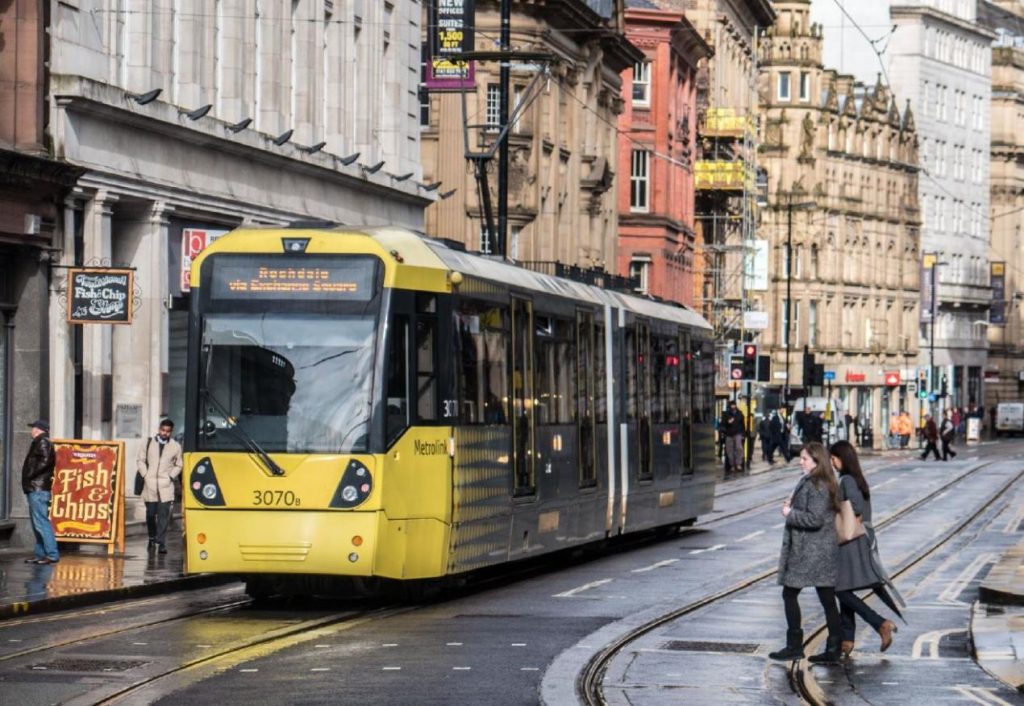News - Construction News
Biggest ever investment in city region local transport

Working people across the North, Midlands and the South West will benefit from the biggest ever investment in buses, trams and local train infrastructure in city regions.
Ahead of the Spending Review, Chancellor Rachel Reeves said that “a Britain that is better off cannot rely on a handful of places forging ahead of the rest of the country,” adding that the “result of such thinking has been growth created in too few places, felt by too few people and wide gaps between regions, and between our cities and towns.”
She unveiled the first investment announcements from the Spending Review, with £15.6Bn of funding for local transport projects in England’s city regions – including South Yorkshire, the North East, the East Midlands and Tees Valley. The funding – a more than double real-terms increase in capital spending on local transport in city regions by 2029/30 compared with 2024/25 – will empower local leaders to invest in transport projects that will make a difference to their local area.
Transport Secretary Heidi Alexander, said: “This marks a watershed moment on our journey to improving transport across the North and Midlands – opening up access to jobs, growing the economy and driving up quality of life as we deliver our Plan for Change.
“For too long, people in the North and Midlands have been locked out of the investment they deserve. With £15.6Bn of Government investment, we’re giving local leaders the means to drive cities, towns and communities forward, investing in Britain’s renewal so you and your family are better off.”
This long-overdue investment outside of London and the South East will see projects like the Metro extension linking Washington to Newcastle and Sunderland and the renewal of South Yorkshire’s tram network linking employment and housing areas in Sheffield and Rotheram get off the ground – creating jobs, better commutes, bigger labour markets and more opportunity.
The five-year settlements will mean the Mayor of West Yorkshire can commit to delivering the West Yorkshire Mass Transit, which will be fully integrated with cycling, walking, bus and rail, making journeys quicker, more accessible and more reliable across the region.
The funding will also mean the Mayor of the West Midlands can build a metro extension to Birmingham’s sports quarter, making a start on his ambitions to deliver mass transit from East Birmingham to North Solihull.
It will also allow the Mayor of Greater Manchester to transform the Metrolink tram network, with new stops in Bury, north Manchester and Oldham and a Metrolink extension to Stockport town centre.
Henri Murison, Chief Executive of the Northern Powerhouse Partnership, said: “This government’s decision to back major local transport projects with serious, long-term investment will be critical to driving regional growth. The economic revival of Greater Manchester, enabled by sustained investment in the tram network in particular, has already begun to close the productivity gap with London. To build on that success and replicate it across all our regions in the North, we need to see key projects delivered – including the extension of the Metro to Washington, the replacement of the Sheffield tram fleet, and the extension of Metrolink to Stockport.
“Too many times in the past, a trade-off was made – due to limited funding – between connectivity within and between our regions. The spending rules adopted last autumn mean this government can invest in both at the same time, unlocking far greater productivity gains than prioritising one at the expense of the other.”
Jonny Haseldine, Head of Business Environment at the British Chambers of Commerce, said: “The pathway to the strong and consistent growth the UK economy needs has to come through investment in our regions.
“That means developing regional infrastructure, including transport projects and grid connectivity, improved rail capacity and electrification of key sections of the network.
“These projects can then give firms involved in the supply chains real confidence to start planning and investing in their local economies.
“But it is critical that no corner of the UK gets left behind and regional development works in alignment with national goals.”
If you would like to read more stories like this, then please click here
Related Articles
More News
- £115M lost to cyberattacks
28 Nov 25
Small construction firms lose over £115 million to cyberattacks annually, making it the UK’s third-most
- £10M for EV charging tech
27 Nov 25
New cutting-edge technology, backed by £10 million of government funding will allow electric vehicle (EV)
- From One-Time Project to Lifetime Client: How Smart Pricing Wins You Repeat Construction Work
26 Nov 25
Learn how to price construction work for profit and trust—turning one-time jobs into lifetime clients






